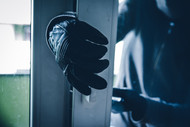Choosing your First Home Defense Firearm
Feb 1st 2023
The decision to purchase a firearm for home defense isn't always easy. So many circumstances and scenarios can be behind reaching that decision, and if you've never owned a gun, trying to choose your first can be overwhelming. You may not have experience with firearm lingo, know about ammo, and be immediately swamped with selections that seem like overload.
We understand, and our experts are here to help inform you on what to look for and what to avoid and explain the steps to choosing the right firearm for you and your home's defense.
Understanding the Law
If you live within the United States, your first step before choosing a firearm is understanding and abiding by federal, state, and county firearm laws. This requires research to become thoroughly familiar with these laws, and online is the perfect place to begin. We recommend you locate and study state law enforcement websites detailing state regulations. Additionally, the ATF, or Bureau of Alcohol, Tobacco, Firearms, and Explosives website, has a dedicated page to the state laws and published ordinances – firearms edition, though do note it may not always be up to date.
You can also research gun laws by state, then by county to further narrow it down. A few of the primary federal laws apply to all gun owners in all states, and these are:
- Must have no criminal record, within certain limited exceptions
- You must pass a strict background check if you purchase from a licensed firearm dealer.
- Must not suffer from certain mental illnesses that may impair your judgment
- Have not been treated for drug or alcohol addiction within the last five years
- Must be a U.S. citizen or legal immigrant
- You must be 18 years or older to buy a gun from a private seller or 21 years or older to purchase from a licensed dealer.
Go Beginner-Friendly
If you have never owned a gun and have never practiced shooting before, the best choice and the firearm you will benefit most from is one that is easy to shoot. The two key features that make or break a great first-time home defense firearm are recoil and a proper fit to your hand.
That may lead you to the following question: how do I find a gun that fits properly? The answer to that is twofold: you should learn how to grip a weapon properly, and you should visit an accredited, certified trainer at a reputable gun range or shop to help you learn about grip while they will also help you find a firearm that will fit you. There's no accurate way to measure your hand and compare the measurements to a gun you can't interact with to know how it will feel when you hold and grip it in person.
In our experts' opinion, what firearm is the most beginner-friendly to learn? We believe that a pistol is a fantastic first-time choice.
Caliber
Handgun ammunition is measured by caliber expressed in millimeters or inches. If the unit of measurement does not include "mm," then it's safe to assume the designation is inches. Example: you should see "9mm" or "10mm," which indicates the caliber is millimeters. Calibers for handguns are categorized as small, medium, or large. The most common calibers you will run into or see are:
- .32 ACP (small)
- .380 (small)
- .22 LR (small)
- 9mm (medium)
- .40 (medium)
- 10mm (medium)
- .45 ACP (large)
- .357 or .44 Magnum (large)
Why does caliber choice matter? Larger-caliber bullets travel faster and impact targets with greater force, but the guns that fire them are also bigger. As a novice shooter, you will likely have a better learning experience on a small-frame, small-caliber gun for learning grip and handling.
Although 9mm bullets produce more recoil when fired compared to a .32 ACP round, handling a full-sized 9mm is much easier than a compact .32. Most 9mm handguns have a heavier frame that helps to absorb a significant amount of form than a .32's smaller frame.
Other Considerations
- Take and pass a gun safety and shooting class. A reputable Firearm License Class or Instructor can teach without you needing to own a handgun.
- Ease of use should be the priority in choosing your first firearm for home defense, especially true for beginners. Try and avoid overly complex safety mechanisms and complicated to-clean handguns.
- The size of a handgun and its weight are essential as well, not just for recoil management but also for mobility.
- The second most crucial aspect of choosing your first gun for home defense is its reliability. You need a gun that fires when and how it is supposed to and not when it's not. Choose a firearm with no reports of design or manufacturing-related safety issues and has fired at least 5,000 rounds in quality control tests with zero malfunctions.
- Don't go cheap. Ask any experienced shooter or expert, and they'll tell you never to buy the most inexpensive gun. If you are looking for affordable, search for a high-quality, well-reviewed, safety-tested handgun with no frills or accessories.
- Last but never least: try before you buy. Head to your local gun store for expert help and let them know what you're looking for. If possible, and even better, visit a gun store that is also a local range. Many gun shops with ranged will allow you to rent a handgun to try for about an hour before deciding what to buy.
Our Top 2 Recommendations for First-Time Shooter's Home Defense
Glock 43 9mm
- Glock 43 9MM. Compact, crisp, single-stack pistol rated as one of the best defense guns for beginners. Easy to hold, so as a beginner, you'll find it more accessible to learn with. Its smaller size is a benefit when learning as a new shooter.
- Glock 43's trigger pull is rated as a standard 5.5 lbs, yet the trigger is so efficient that each shot can be pulled off flawlessly.
Taurus Gx4 9mm
- Reduced size design with a well-made polymer grip frame and anti-corrosion properties.
- The Taurus' polymer grip's surface has excellent coverage on the front strap, back strap, and sides. If you're prone to having palms that sweat or find certain gripping surfaces difficult, beginners will appreciate this extra feature.
- A more oversized trigger guard is a better fit for a beginner who may want to wear gloves.
As a newcomer to firearms, things can get overwhelming pretty quickly. That's why we're always here to help. Would you love to know more about what our experts think makes a great first firearm for home defense? Do you have more questions for us, or are you looking to invest in your first handgun? We're here for you. Please feel free to reach out and contact our knowledgeable staff at any time.


